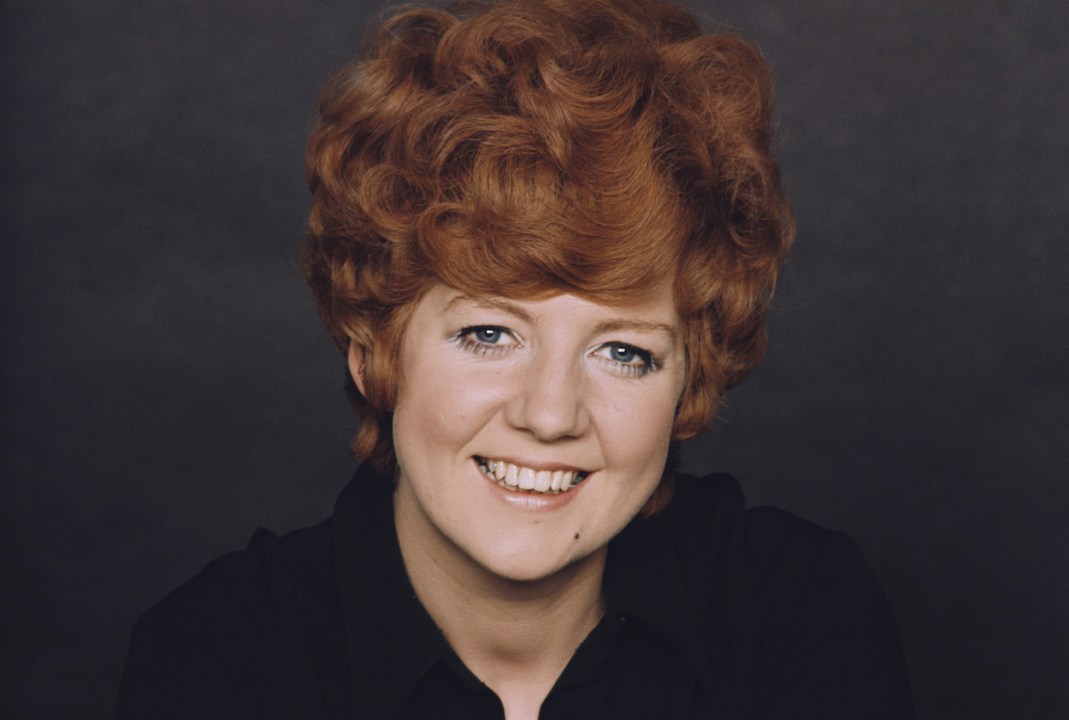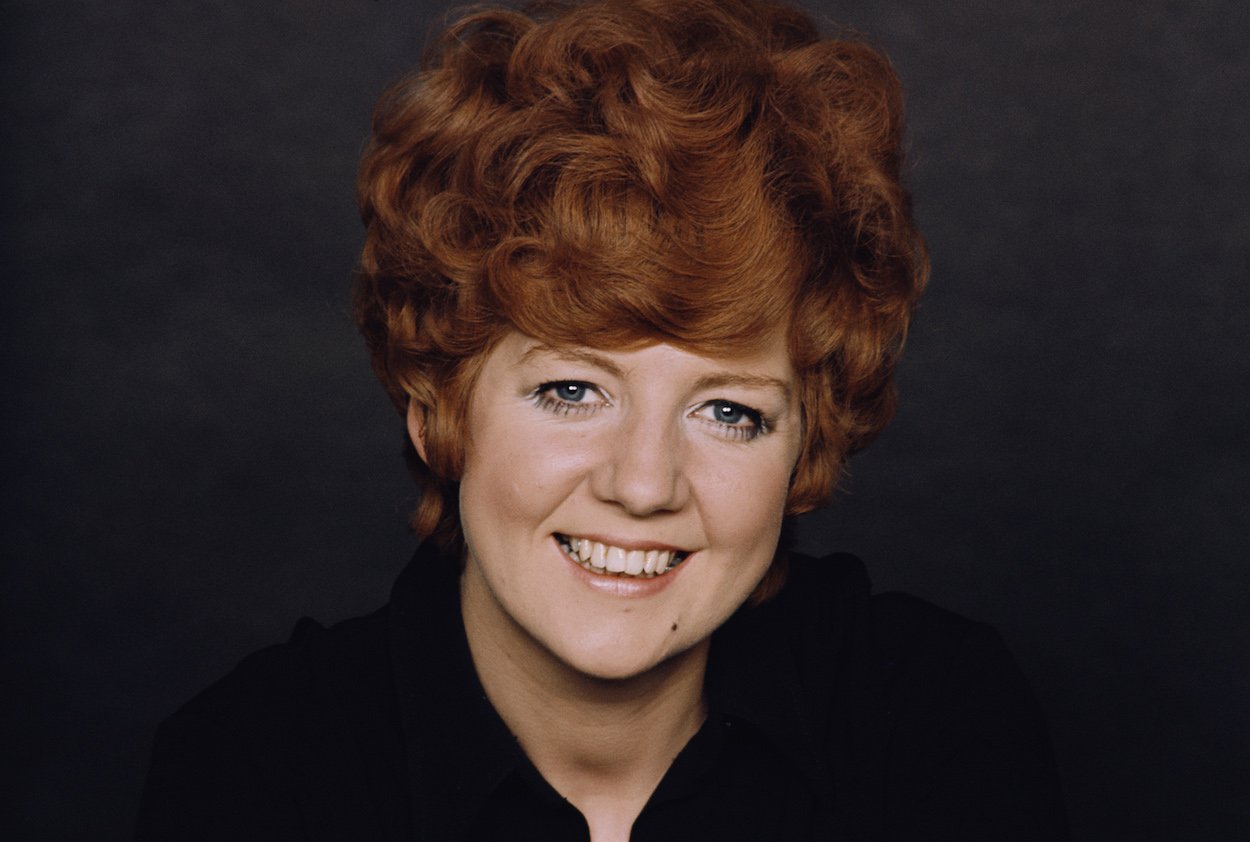She was an unlikely contender for fame from the outset, with a pub singer voice and a nose so prominent she would later have it surgically reduced. But, with her Scouser-next-door persona and trademark cropped hair, Cilla Black was in the right place at the right time: she rode the popular wave created by Beatlemania and its attendant appetite for all things Liverpudlian. This led to national stardom as a singer.
Then, when her pop career waned, instead of disappearing into obscurity, Cilla managed to relaunch herself into a spectacular second career as one of the biggest names at the lighter end of TV light entertainment. Now, some nine years after her death, Cilla has achieved her most unlikely success yet – by becoming a household name among gen Z.
‘Her whole persona was about being friendly and outgoing which must have been exhausting to keep up’
I first became aware of this strange phenomenon when we made our annual family trip to panto, the excellent Charles Court Opera’s The Odyssey at the Jermyn Street Theatre. This featured a skit in which a woman pretended to be a man pretending to be a woman, a Scouse woman, to perform a drag queen turn as a grotesque and foul-mouthed Cilla – to uproarious laughter.
I fully expected to have to explain to our son and daughter, aged 17 and 24, whom they had been lampooning. Instead, I discovered that both were familiar with her oeuvre: ‘Everyone knows Cilla Black,‘ they told me. Imagine my surprise. Or should I say, my surprise, surprise.
To be fair, I had already noticed that Cilla seemed to be popping up a lot recently in my various social media feeds, but I had hitherto assumed that this was some sort of personalised algorithmic punishment for some forgotten moment of curiosity about her on Google. But no: it turns out it’s not just my feed. In 2024, Cilla Black is everywhere.
She is in memes, in clips, in strings of jokes. She is online gold, particularly on the favoured medium of the young, TikTok. There’s now a cottage industry of amateur archivists digging out the strangest or most cringey moments from her TV back catalogue to share with her new fans. These rack up hundreds of thousands of views under titles like ‘Cilla murders another classic’, ‘Good God’ and ‘Icon’. Long forgotten moments are resurrected: witness Bette Middler looking on in bemusement in 2010 as Cilla and Paul O’Grady dress as members of a Salvation Army band to perform a raucous version of ‘I See the Moon’.
There’s Cilla singing, badly, Lionel Richie’s ‘All Night Long‘. There’s Cilla, oddly, rubbing an Oxo cube into an orange and then snacking on it (apparently a hangover from her meat-free childhood Catholic Fridays).
If this is your comedy cup of tea then there are a lorra, lorra laughs to be had. And I now discover she’s particularly revered by drag artists and frequently crops up as an impression in their routines, hence that panto skit. Cilla has even done something she never managed in life: built a profile in America. She is now apparently known to millions there as ‘The Surprise, Surprise lady’.
True, she always had an unlikely cachet for my generation too. Between approximately 1985 and1995, in those days when seemingly every Saturday night was geared around a party, a nightclub or a rave – sometimes all three – it was always de rigueur to begin the evening with pre-drinks while getting dressed up and half-watching, ironically of course, Blind Date. I just never imagined I’d be reminded of this again nearly 40 years on.
The Cilla phenomenon is now so established that even the BBC – who employed her for some eight years before she defected to ITV – recently published a piece titled ‘Who is Cilla Black and why is she all over your social media?’ But, as is so often the case with SEO-friendly pieces which pose a question, the author eventually concluded that it’s not really clear why Cilla is suddenly everywhere.
So, still puzzled, I asked the self-confessed Cilla enthusiast, writer Neil Alexander to explain. He said: ‘The Cilla phenomenon started in earnest last Christmas and has simply grown and grown since then. It’s now huge. It’s mainly those in their 20s and early 30s who are driving it and they seem to find in her historic TV output an expression of a more innocent time. And for them that’s a welcome contrast from the news cycle and real life. Her campness seems to resonate with them.’
Neil, whose mystery novel The Vanishing of Margaret Small is predicated on a superfan and a possible intervention by Cilla from beyond the grave, went on: ‘Susan Sontag defined camp as “a seriousness that fails” – and I think that’s what we see when we watch a clip of Cilla singing “I Will Always Love You”, say. It’s high camp. And that is very popular indeed.’
Admittedly the renewed interest has not been universally positive. Much of the US attention seems to be from woke college students belatedly deploring how, almost 60 years ago, Cilla launched her pop career by rerecording the work of a black artist, Dionne Warwick. A supposed early instance of what these days is known as cultural appropriation.
And here in the UK, while much of the attention is affectionate, or incredulous, some Cilla mentions are less flattering. One viral post, with a bleak photo of her alone at a pub table for four, is a real j’accuse: ‘I met Cilla Black once – she sat at a table I’d reserved and refused to move. Her spiteful arrogance was astounding.’ Neil thinks this aspect of the attention is harsh: ‘Some people traduce Cilla as being secretly nasty but I think that is unfair. Her whole persona was about being friendly and outgoing which must have been exhausting to keep up. So she can be forgiven the occasional off day.’
My decade of Blind Date viewing has meant Cilla never fully left me. To this day, if asked to summarise anything, for any reason, in any context, my immediate instinct is always to preface my reply with: ‘But first here’s our Graham with a quick recap.’ Although I think I’m content to leave the Cilla revival to the young.







Comments